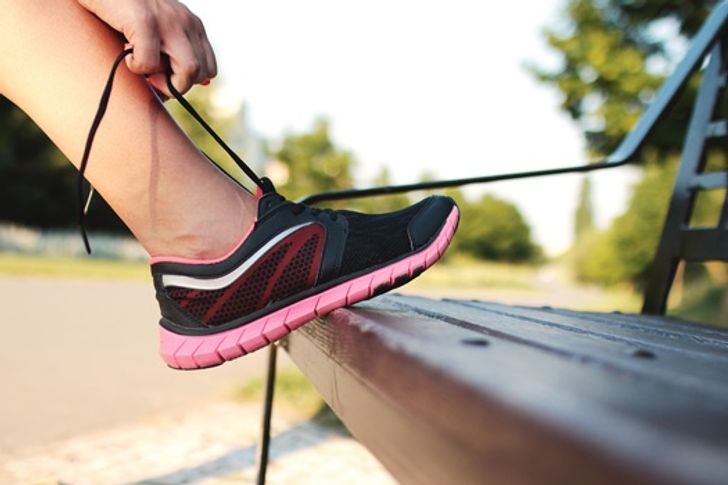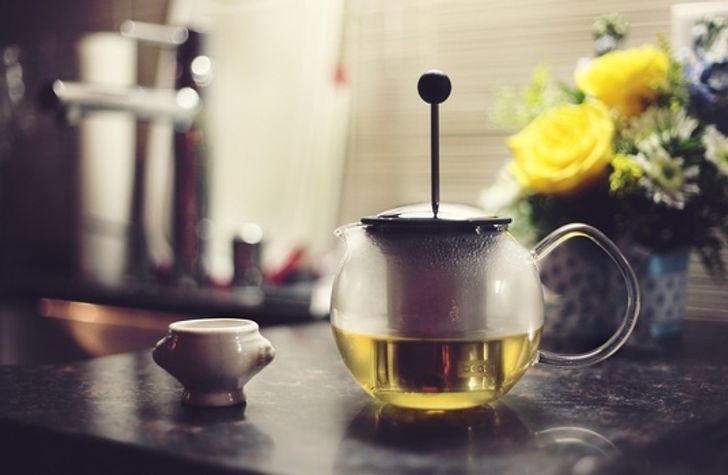Anxiety is more than just occasional worry—it’s a pervasive feeling of unease that can disrupt daily life, affecting your mood, energy, and overall well-being. In today’s fast-paced world, the prevalence of anxiety has surged, making it essential to understand its root causes and identify effective methods to manage and reduce its impact. Whether you’re experiencing anxiety attacks, chronic anxious thoughts, or sudden bouts of stress, the strategies outlined in this guide are designed to empower you with practical, natural solutions.
In this comprehensive guide, we explore five highly effective ways to calm anxiety and stop anxiety attacks. Using evidence-based techniques and expert insights, we’ll delve into how to combat anxious thoughts, harness the power of meditation and breathing, naturally boost your mood, incorporate natural remedies, and avoid anxiety triggers like caffeine. By integrating these strategies into your daily routine, you can take control of your anxiety and embrace a calmer, more balanced life.
Combat Anxious Thoughts: Cognitive Techniques for Effective Stress Management

Anxiety often begins in the mind, with negative thought patterns that spiral out of control. Combatting anxious thoughts is the first step in regaining control over your emotions. Cognitive-behavioral therapy (CBT) is one of the most effective methods for addressing anxiety, focusing on reframing negative thought patterns and replacing them with rational, balanced perspectives.
Key Strategies to Combat Anxious Thoughts:
- Identify and Challenge Negative Thoughts: Recognize recurring negative thoughts that trigger anxiety. Write them down and ask yourself if they are based on facts or irrational fears. Tools such as thought records, commonly used in CBT, can be very effective.
- Practice Self-Compassion: Treat yourself with the kindness you’d offer a friend. Remind yourself that it’s okay to feel anxious and that taking small steps to improve your mental health is a courageous act.
- Set Realistic Goals: Break tasks into manageable steps. Overwhelming goals can fuel anxiety; instead, focus on what you can achieve in the moment.
For further insights into managing anxious thoughts, consider reading articles on Psychology Today or exploring CBT techniques recommended by mental health professionals.
Incorporating these cognitive techniques not only helps in the short term but can also lead to long-lasting changes in how you manage stress and anxiety on a daily basis.
Meditate and Breathe: Harnessing Mindfulness for Anxiety Relief

Mindfulness meditation has emerged as a powerful tool for calming anxiety and reducing stress. By focusing on your breath and being present in the moment, you can create a mental space that helps diminish the intensity of anxious feelings. Studies have shown that regular mindfulness practices can lower cortisol levels—the body’s stress hormone—leading to a more relaxed state of mind.
Effective Mindfulness Practices:
- Deep Breathing Exercises: Simple deep breathing techniques, such as the 4-7-8 method, help to slow down your heart rate and lower stress levels. Inhale for 4 seconds, hold for 7 seconds, and exhale slowly for 8 seconds.
- Guided Meditation: Utilize apps like Headspace or Calm, or explore free guided meditations available on Mayo Clinic’s website to ease into the practice of mindfulness.
- Progressive Muscle Relaxation: This involves tensing and then relaxing different muscle groups in your body, which helps in releasing physical tension and promoting overall relaxation.
Regular mindfulness and breathing exercises not only provide immediate relief during an anxiety attack but also build resilience over time. By integrating these practices into your daily routine, you can improve your mental clarity, reduce anxiety triggers, and enhance your overall quality of life.
Releasing Feel-Good Brain Chemicals: Naturally Boost Your Mood

Our brain’s chemistry plays a critical role in managing anxiety. Neurotransmitters like serotonin, dopamine, and endorphins are responsible for our feelings of happiness and well-being. Engaging in activities that promote the release of these feel-good chemicals can provide a natural boost to your mood and help alleviate anxiety.
Ways to Boost Your Brain’s Natural Chemicals:
- Physical Exercise: Regular aerobic activities such as jogging, cycling, or even brisk walking can trigger the release of endorphins, often known as the body’s natural painkillers. Exercise not only improves mood but also enhances overall cognitive function.
- Social Interaction: Spending quality time with friends and family can elevate serotonin levels. Even when feeling anxious, positive social interactions serve as a natural antidote to negative thoughts.
- Healthy Diet: Nutrients such as omega-3 fatty acids, found in fish and flaxseeds, and magnesium, found in leafy greens and nuts, are vital for optimal brain function. Eating a balanced diet can have a profound impact on your mood and energy levels.
In some cases, supplements like CBD oil or herbal remedies (such as St. John’s Wort or Ashwagandha) may be recommended by healthcare providers to help balance your mood. However, it’s essential to consult with a professional before starting any new supplement regimen.
By understanding and leveraging the science of neurotransmitters, you can naturally lift your spirits and create a more resilient mental state, making it easier to combat anxiety when it arises.
Try These Natural Remedies: Herbs, Supplements, and Lifestyle Changes for Anxiety Relief

In addition to cognitive and mindfulness strategies, many natural remedies have been shown to help alleviate anxiety. These remedies can work synergistically with other treatments, offering a holistic approach to managing anxiety symptoms.
Popular Natural Remedies for Anxiety:
- Herbal Supplements: Herbs like chamomile, valerian root, and passionflower have been traditionally used to promote calmness and relaxation. Research on these herbs indicates that they may help reduce symptoms of anxiety in some individuals.
- Adaptogens: Natural compounds like Ashwagandha and Rhodiola rosea are known for their ability to help the body adapt to stress. These adaptogens can regulate cortisol levels and improve your overall response to stress.
- Aromatherapy: Essential oils such as lavender, bergamot, and frankincense have a calming effect on the mind. Diffusing these oils in your living space or using them in a personal inhaler can create a soothing environment that minimizes anxiety.
- Nutritional Interventions: Incorporating foods rich in antioxidants, vitamins, and minerals is crucial for brain health. A diet abundant in fruits, vegetables, lean proteins, and whole grains supports the body’s natural ability to manage stress.
For more detailed information on natural remedies, check out resources from Healthline and WebMD.
These natural approaches can be seamlessly integrated into your daily routine. By making conscious lifestyle choices and incorporating these remedies, you can create a supportive environment that not only calms your anxiety in the short term but also contributes to long-term mental wellness.
Avoid Caffeine: Reducing Stimulants to Prevent Anxiety Attacks

While caffeine is a beloved pick-me-up for many, it can also be a hidden trigger for anxiety. Caffeine is a stimulant that increases heart rate and can elevate cortisol levels, which may intensify feelings of nervousness and trigger anxiety attacks. For individuals prone to anxiety, reducing or eliminating caffeine intake can be a pivotal step in managing symptoms.
Tips for Reducing Caffeine Intake:
- Gradual Reduction: Instead of quitting caffeine cold turkey, reduce your intake gradually. Replace one cup of coffee with a decaffeinated version or herbal tea every few days to allow your body to adjust.
- Alternative Beverages: Experiment with non-caffeinated alternatives such as herbal teas (e.g., chamomile or peppermint), decaf coffee, or infused water with lemon and mint. These options can satisfy your craving for a warm, comforting beverage without the jitters.
- Monitor Hidden Sources: Caffeine isn’t only found in coffee and tea. It’s also present in chocolate, certain medications, and energy drinks. Being mindful of these sources can help you better control your overall caffeine consumption.
Reducing caffeine can lead to fewer anxiety attacks and help stabilize your mood. It’s important to note that while some people might not experience negative effects from moderate caffeine consumption, those with heightened anxiety should consider limiting their intake to avoid exacerbating symptoms.
For a more detailed exploration of caffeine’s effects on anxiety, visit Mayo Clinic’s guide on caffeine.
Conclusion: Embrace a Calmer, Healthier Life
Managing anxiety is a multifaceted process that involves both mental and physical strategies. By combating anxious thoughts through cognitive techniques, harnessing the power of mindfulness and deep breathing, naturally boosting feel-good brain chemicals, exploring holistic natural remedies, and being mindful of stimulants like caffeine, you can build a comprehensive approach to reduce anxiety and stop anxiety attacks.
Remember, every individual is unique, and what works for one person might not work for another. It’s essential to experiment with these strategies, listen to your body, and, if needed, seek professional guidance. Integrating these practices into your daily routine can lead to lasting improvements in your mental health and overall quality of life.
If you’re interested in learning more about anxiety management techniques, consider exploring resources from trusted organizations like the National Institute of Mental Health or speaking with a mental health professional. With persistence and the right tools, you can embrace a calmer, healthier life and find lasting relief from anxiety.
Incorporating these scientifically backed strategies and natural remedies into your lifestyle can pave the way for enhanced emotional resilience and overall well-being. Start with small changes, be patient with yourself, and celebrate each step you take towards a more balanced and anxiety-free life.
By taking proactive measures today, you can significantly reduce anxiety and reclaim your inner peace—empowering you to live a life full of positivity and renewed energy.
Photo credit: Pexels









Leave a Reply